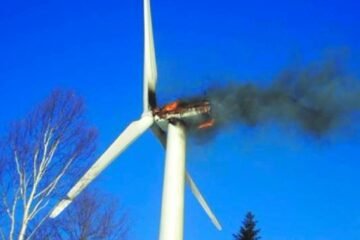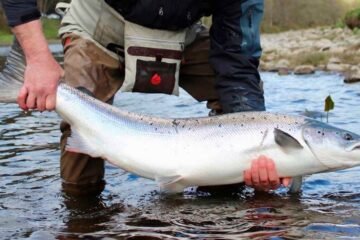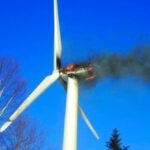A fast-moving wildfire tearing through Scotland’s Galloway Forest Park is pushing emergency services to the brink, with crews working through the night and into Saturday as fresh concerns over firefighter exhaustion grow.
The fire erupted late Friday night in Glentrool and has since spread rapidly across the rugged forest landscape, with flames threatening nearby hills and reaching as far as East Ayrshire.
Helicopters Called In as Flames Advance Across the Highlands
Firefighters were first dispatched to Glentrool just before midnight on Friday. What they encountered was already out of control — a massive wall of fire devouring dry brush and creeping into some of the most remote terrain in southern Scotland.
By Saturday morning, crews were still deep in the forest. And they weren’t alone.
Police confirmed that firefighting helicopters were now being used to contain the blaze, dropping water over hot spots stretching across Merrick Hill, Ben Yellary, and Loch Dee.
One sentence says it all: this thing is big.

Exhausted Crews, Endless Shifts, No End in Sight
Firefighters have been battling the blaze with almost no rest. And it’s beginning to show.
Crew members have now been on duty for over 24 hours in harsh, mountainous terrain. There’s growing concern — from both inside and outside the service — that fatigue is setting in. And it’s dangerous.
There’s no official count yet, but firefighters are being rotated in shifts from across regions. The problem? There simply aren’t enough fresh hands.
One firefighter speaking off the record described the conditions as “brutal,” adding, “This isn’t like a house fire. You’re out there for hours, and it never stops.”
Police Warnings and Public Appeals as Area Becomes Hazardous
As of Saturday afternoon, Police Scotland had issued urgent public warnings urging people to stay away from the affected zones — particularly Glentrool, Loch Doon, and areas around East Ayrshire.
Officers warned the fire could shift directions with little notice, making the area highly unpredictable and unsafe.
Roads are being monitored, and some may be closed depending on the fire’s movement. Police also emphasized:
-
Stay away from forest trails and paths in the region.
-
Avoid using drones or flying personal aircraft that could interfere with firefighting helicopters.
-
Report any signs of new fires or smoke plumes immediately.
So far, no injuries or evacuations have been reported, but that could change quickly if winds turn.
Wildfires Are Becoming a Seasonal Threat in Scotland
This isn’t just a freak event.
Scotland has seen a worrying uptick in wildfires over the past few years. Experts say it’s a mix of climate shifts, long dry spells, and more human activity in wild areas.
Data from the Scottish Fire and Rescue Service (SFRS) shows a steady climb:
| Year | Number of Wildfires | Average Duration (hours) |
|---|---|---|
| 2019 | 172 | 4.5 |
| 2021 | 248 | 6.2 |
| 2023 | 302 | 7.8 |
| 2024 | 319 (projected) | 8.1 |
These fires aren’t just hotter — they’re lasting longer, stretching crews thin, and hitting more remote parts of the country where access is a major issue.
The Galloway blaze is just the latest reminder that wildfires are now firmly part of the national emergency calendar.
Could Weather Be the Wild Card?
Meteorologists aren’t offering much relief.
A dry high-pressure system has locked into the area, keeping rain away and temperatures slightly above seasonal norms. That means the land’s tinder-dry. Add in gusty winds forecasted for the weekend, and conditions could worsen before they get better.
Forecasters say there’s a “slight” chance of rain late Sunday — but nothing heavy enough to douse the fire entirely.
So, fire crews will need to rely on containment lines, air support, and stamina.
And that’s no small ask.
What’s Next: A Long Weekend of Fire and Uncertainty
As Saturday drags into night, firefighters remain on the front lines. Local councils are monitoring air quality, and rural residents have been advised to stay indoors if smoke drifts into their areas.
Wildfire experts are being brought in from other parts of the UK to assist, but the operation is expected to stretch into next week.
No arrests have been made, and no cause has officially been named, but some officials have hinted that a human factor may be involved — possibly a campfire or discarded cigarette.
For now, though, all efforts remain focused on the flames.


















